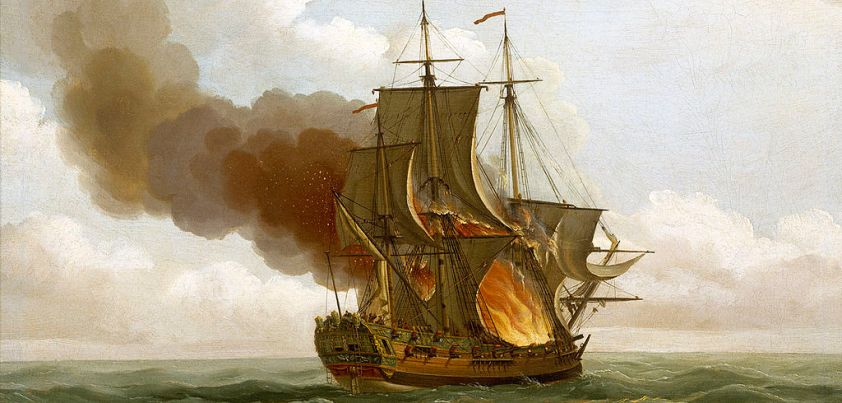 This story from Joseph Conrad is more than a survival tale about an unseaworthy ship beset by bad luck. Central themes are youthful exuberance bordering on recklessness, regret for its passing, and the romance of the sea. The explosion that sinks the vessel marks a turning point for a young ship’s officer. Up until then, his enthusiasm had been fueled by a youthful desire to experience the wonders of the East. He discovers a new side of himself (leadership ability) when he temporarily takes command of the crew’s evacuation to the lifeboats. Other themes: courage, duty, misfortune, survival, self-discovery, pride.
This story from Joseph Conrad is more than a survival tale about an unseaworthy ship beset by bad luck. Central themes are youthful exuberance bordering on recklessness, regret for its passing, and the romance of the sea. The explosion that sinks the vessel marks a turning point for a young ship’s officer. Up until then, his enthusiasm had been fueled by a youthful desire to experience the wonders of the East. He discovers a new side of himself (leadership ability) when he temporarily takes command of the crew’s evacuation to the lifeboats. Other themes: courage, duty, misfortune, survival, self-discovery, pride.
The story is a good example of the unreliability of first person narrators. Flushed with his success in getting everyone safely into the lifeboats, Marlow becomes obsessed with ensuring that his “first command” (one of the lifeboats!) reaches port ahead of the others. In his pride in having done so, he conveniently overlooks the fact that he failed to follow the captain’s orders (to keep the boats together as much as possible), and continued on despite sighting a potential rescue ship on the horizon. His was the smallest, least stable of the lifeboats. In putting the lives of his crew at risk, this reckless behavior is a clear dereliction of duty. O youth!